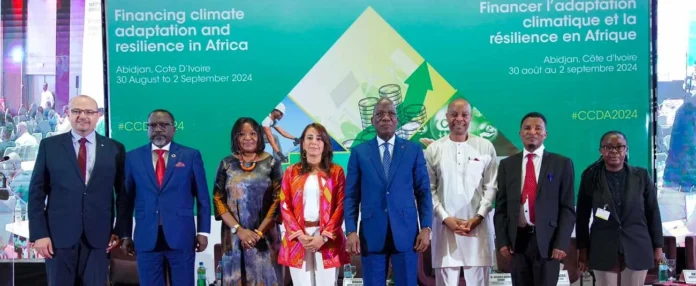African nations, through various institutions and coalitions of negotiators, are calling for an urgent, needs-based climate finance framework to support adaptation efforts ahead of the 29th United Nations Climate Change Conference (COP29) in November 2024, set to take place in Baku, Azerbaijan.
In their various annual pre-COP and strategy meetings, the negotiators that include policymakers, and experts have been actively holding high-level forums to address critical issues and develop cohesive strategies.
Of late is a group of African negotiators under the umbrella of the Kenya Civil Society Organizations (CSOs) which held a meeting early this month in Nairobi. The experts emphasized the critical need for financial support to address Africa’s ongoing financial crisis.
“The Baku summit marks a crucial turning point for climate finance, and it’s essential that our goals for mitigation and adaptation are supported by sufficient resources,” said Ali Mohamed, the chairperson of the group.
Prior to the meeting, CSOs, represented by the Kenya Platform for Climate Governance (PACJA-Kenya), presented a position document calling on global leaders to prioritize financing mechanisms that empower local climate action, particularly for marginalized populations.
Shaping Africa’s climate negotiation strategy
Between 23rd to the 27th of September this year, African Group of Negotiators Experts Support (AGNES) organized another meeting in Nairobi in collaboration with the Government of Kenya, African Union Development Agency (AUDA-NEPAD), International Livestock Research Institute (ILRI), the Alliance of Bioversity and CIAT (The Alliance hereafter) and Accelerating Impacts of CGIAR Climate Research for Africa (AICCRA) among others shape Africa’s climate negotiation strategy.
Amon the top areas of focus in the list for this meeting was emphasizing the importance of mapping indicators for the GGA to ensure that they capture critical adaptation needs and priorities, along with reviewing various options for the negotiations on the NCQG for climate finance.
“To track adaptation progress effectively, we need strong monitoring systems aligned with clear impact pathways, plus adequate human and financial resources, collaboration, and data sharing,” said Dr. Lucy Njuguna, Post-doctoral Fellow at The Alliance and AICCRA.
Aligning Africa’s climate action priorities
In 30 August African Development Bank, the African Union Commission (AUC), the United Nations Economic Commission for Africa (ECA), and the Pan African Climate Justice Alliance (PACJA), also brought together key stakeholders in Abidjan to align Africa’s climate action priorities.
In the meeting, the Twelfth Conference on Climate Change and Development in Africa, the experts were urged to join forces ahead of COP29, with an emphasis on mobilising climate finance at scale for the continent.
According to Prof. Anthony Nyong, African Development Bank Director for Climate Change and Green Growth, Africa faces a significant climate financing gap.
“We need to continuously increase our support and financing for Africa to address the growing impacts of climate change on national economies, societies, and ecosystems. The current global climate finance falls far short of African countries’ needs and expectations, with less than 3 percent reaching sub-Saharan Africa annually,” said Nyong.
Need for data-driven tools
Generally, the pre-COP meetings are meant to equip negotiators with data-driven tools to demonstrate the specific climate-related risks and adaptation needs for climate finance, highlighting the urgent necessity of adaptation measures.
The COP29 conference also known as the ‘Finance COP’ will focus on various climate-related issues, including setting a new collective and quantified goal on climate finance, defining details for carbon markets, and reviewing progress in refining indicators for the Global Goal on Adaptation, among others.
Africa climate financing report 2023
According to a joint climate financing report by Multilateral development banks (MDBs) and the African Development Bank, their collective financing for climate action hit a record high of $125 billion in 2023, more than doubling levels in 2019.
Of the $125 billion, MDBs allocated $74.7 billion to low- and middle-income economies. Sixty-seven percent of this—or $50 billion—went to finance climate mitigation, which refers to actions that reduce, avoid, limit or sequester greenhouse gas emissions, while $24.7 billion, or 33 percent, was directed to climate adaptation.
Adaptation finance involves activities and measures aiming at reducing the risks or vulnerabilities posed by climate change, and at increasing climate resilience.
Of the $74.7 billion that went to low- and middle-income countries, $28.5 billion, or roughly 38 percent, was mobilised from the private sector.
In this, the report says that given the need and urgency of climate adaptation finance, particularly in climate vulnerable low-income countries, these numbers demonstrate positive steps, but remain well below what is required.
The African Development Bank projects that Africa’s adaptation financing gap from international sources ranges from $166 billion to $260 billion in 2020 – 2030.








